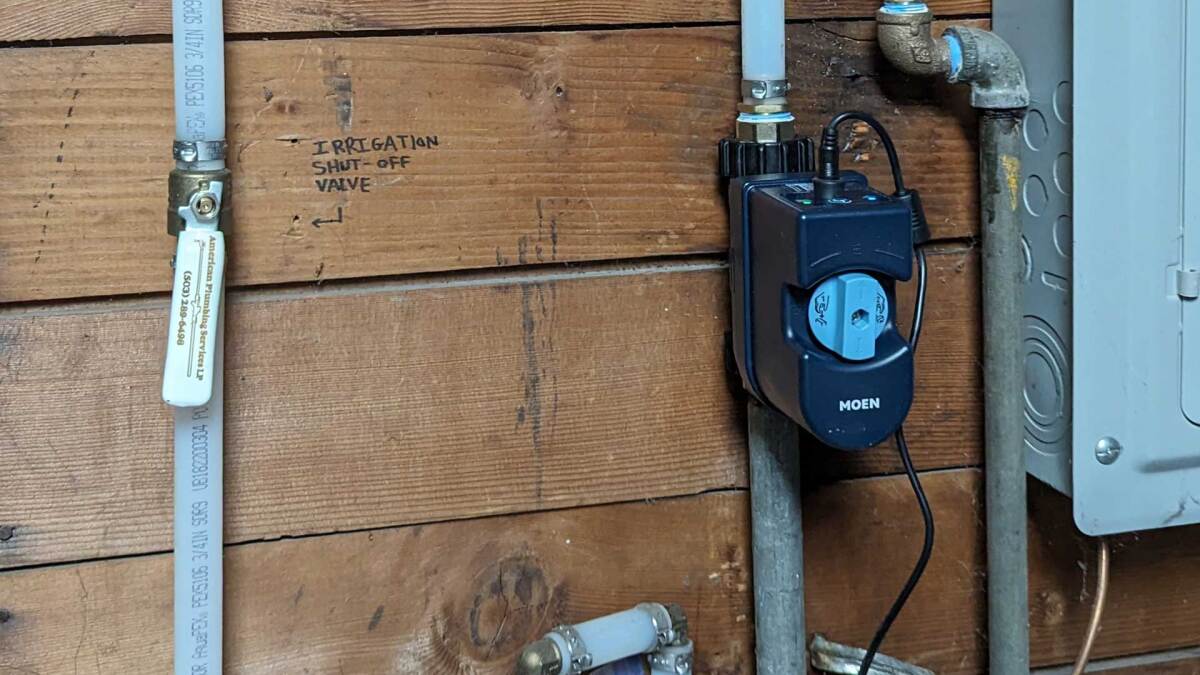
We may earn a commission from links on this page.
Although most people idealistically would like to use less water at home, it’s difficult to measure how successful you are on a day-to-day basis. Sure, your water bill each month reports your overall use and compares it to previous periods, but the bill won’t tell you what uses that water went toward. How much water is used on showers, irrigation, or possible leaks? If we really want to get better at conservation, the key is more specific reporting, and now there are tools to help you.
Smart water shutoff valves
There are two ways water leaves your pipes: on purpose and because of a leak. Smart valves and sensors will look for those leaks and stop them when they happen by turning the water off, and will report, down 1/10 of a gallon, where you used your water. A number of options exist for this technology: A few of the most well-known are the Moen Flo, Phyn, Kohler H2Wise, and Flume 2. These devices are professionally installed along your water line near the turn-off valve (Phyn can be DIY installed), and then synced via wifi to an app on your phone. They report, in real time, where the water is going using algorithms to identify the water destination: toilet, shower, kitchen, pool, irrigation, etc. Every night, it performs a pressure test to ensure there isn’t a leak. When there’s a sudden unexpected water use, the app will contact you, and you can approve it, or it will shut the water off to prevent leaks or water damage.
First, Flo spends a week learning your water use, and setting a baseline of how much water you use and what is typical for your size household. I was using between 500-700 gallons a week during peak irrigation season. What I realized on hearing that was that I had no idea if this was a good amount or not, which tells you how out of touch I was with my own water consumption. Once Flo is done with the training period, the app will set a goal for you, and it gives you updates on how you’re hitting those water usage goals.
For the first few days, I was fascinated by the reporting tools on Flo. When the app misidentifies a water use, you can correct it, and over time, I found Flo got better at identifying where my water was going. Once a week, Flo would send me a report telling me how I was doing, and I was able to identify a few places I could cut down water usage, like hand-washing dishes. Actually seeing how much water an outdoor waterpad for my dog used was helpful. Because irrigation was going off at odd times, I also got to experience what it’s like when Flo thinks there’s a water leak. Not only did I get an email and a text message, but an actual phone call, too. If I hadn’t responded to any of the outreach, Flo would have just turned the water off and then I could turn it back on using the button on the physical unit or my app, but I appreciated how hard they worked to alert me. Even though we’re headed into the hottest part of summer, I’ve cut down my water use by about 15% by just being more aware of where it’s going.
Smart weather watering stations
During the summer, one of the main places your water is going is your yard or pool. There’s an enormous amount of water consumption in gardens and grass, and most people use timers that turn the water on and off at set times, regardless of the moisture levels in the ground or air and whether the plants actually need all that water. Smart watering stations will fix that by syncing to local weather stations and changing the watering based on the temperature, humidity, and rain. My Hydrawise watering station reports daily on how much water was saved by using local weather conditions, and it’s impressive at the end of the season. There are a number of companies making these devices, including:
Water leak detectors
Water leak detectors aren’t new, but smart water leak detectors are. These sit on a flat surface and act as sensors. When they sense water, they can trigger an alarm, or shut off, or flash lights—any automation your other smart devices are capable of. Since water leaks are a leading cause of home damage, getting to the leaks early is helpful. Placing water sensors under your water heater or sinks are a good idea, but also consider near your toilets, bathtubs, or automated planters.
Smart water leak detectors:

Comentarios recientes